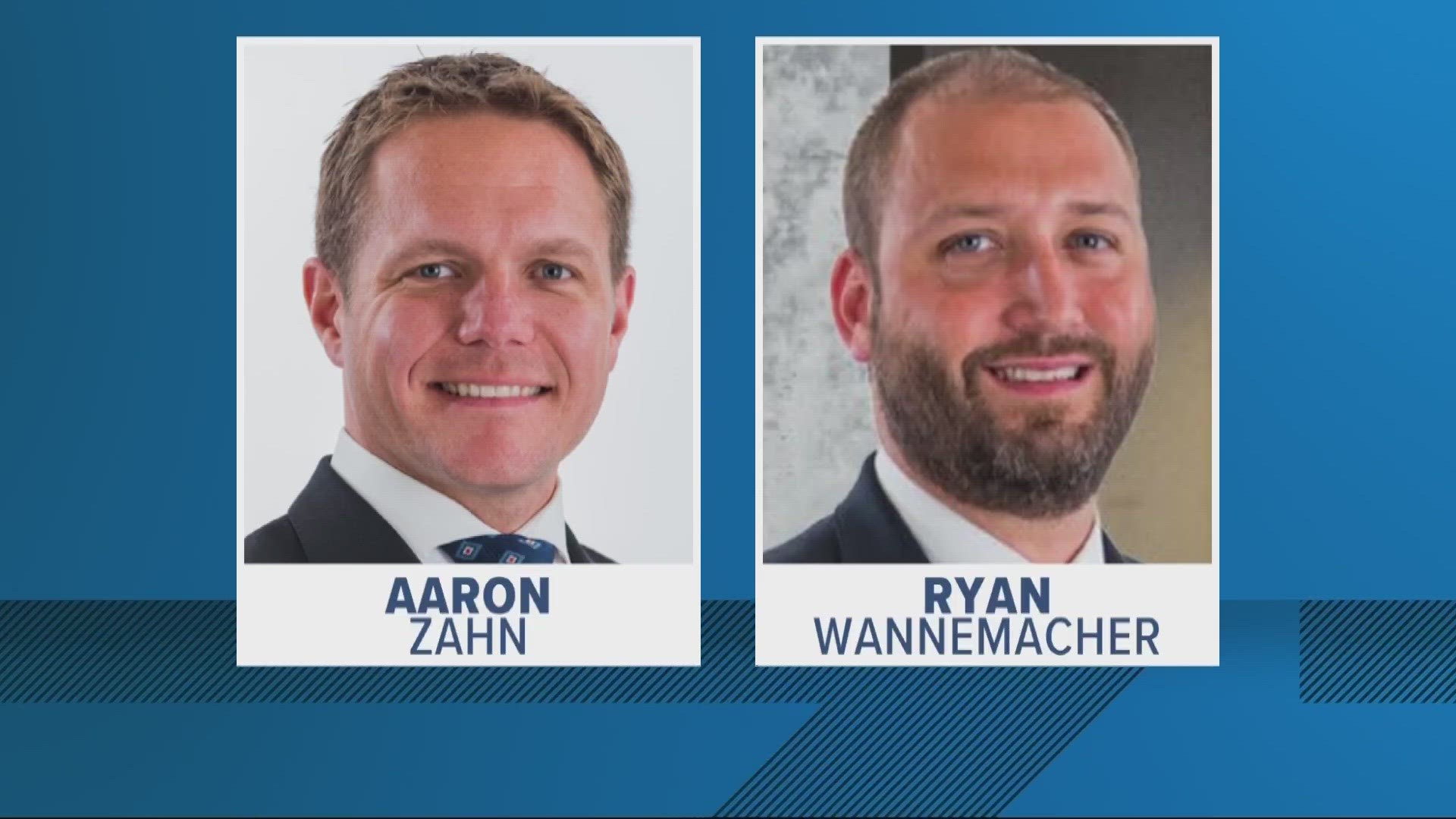JACKSONVILLE, Fla. — A former JEA executive broke her three-year silence this week in the criminal case against two former colleagues.
Former Interim Chief Operating Officer Melissa Dykes has declined interview requests from city officials, city attorneys and the media since the failed sale of JEA in 2019, though she did testify before a federal grand jury last September.
Dykes told a federal magistrate judge Wednesday that she threatened to quit if the JEA Board of Directors moved forward with a proposal to fire 574 JEA employees – the so-called “doom and gloom” scenario advanced by executives favoring privatizing the city-owned utility. Dykes called the grim scenario “an academic exercise, and purely theoretical” – not intended as a legitimate path forward.
The board chose to pursue privatization rather than make those cuts.
Dyke’s testimony came on day seven of pretrial hearings in the federal criminal case against former CEO Aaron Zahn and former CFO Ryan Wannemacher. Both have pleaded not guilty to charges of fraud and conspiracy for crafting a lucrative benefit plan linked to the sale of JEA. Prosecutors say it would have generated a multimillion-dollar windfall for both men.
Several key players who helped stop the sale of JEA in 2019 -- financial experts and CPAs – also testified.
Magistrate Judge Monte Richardson heard testimony about the exorbitant value of the Performance Unit Plan, or PUP -- a long term incentive advanced by Zahn and Wannemacher.
JEA VP of Financial Services Joe Orfano, who was JEA treasurer at the time of the failed sale effort, testified, “Mr. Wannemacher told me that I should not discuss the value of the PUP with anyone,” adding that “[Wannemacher] was instructed by Mr. Zahn” to share that message.
Orfano testified Wannemacher was relying on the board approving the PUP.
"Mr. Wannemacher made a comment to me that if the [Jacksonville City] Council doesn’t approve the PUP plan, that 'we’re all outta here... because we created this value.’”
“When Ryan Wannemacher said, ‘We created this value,’ what did you take that to mean?” asked Assistant U.S. Attorney Arnold Corsmeier.
“[The value] that would result from a potential privatization,” Orfano said. "We" denoted JEA's strategic leadership team, he explained.
Orfano testified he told Zahn that linking the PUP compensation payout to a potential sale of JEA “was untoward.”
“I believe shortly after expressing my disapproval I was eliminated from any future email traffic around the PUPs,” he added.
City Council Auditor Kim Taylor and her predecessor Kyle Billy both testified about a protracted effort to get specifics from JEA officials about the PUP. When they did get those figures, Taylor testified, JEA execs incorporated fiscal year data into their calculations that seemed chosen to reflect the best possible scenario.
“The perception was that they were trying to show a lower value,” Taylo said, “...to make it seem like the payout would be less than we had thought.”
“It’s called cherry-picking,” former Council Auditor Kyle Billy, Taylor’s predecessor testified.
Thursday was the 7th day of pretrial hearings in the criminal case, which is set to go to trial in October.
The so-called Kastigar hearing was requested by lawyers for Zhan and Wannemacher, who believe the prosecution team and witnesses were “tainted” by exposure to constitutionally protected statements the defendants gave city officials investigating the sale.
The hearing is expected to conclude this week.
RECAP:
- Related: Power players testify in Day 6 of JEA pretrial hearings in Jacksonville
- Related: 'It was surreal’: JEA hearings reveal political intrigue, pressures
- Related: JEA executive planned to pocket $40 million in sale of utility, prosecutors say
- Related: Prosecutors: JEA execs 'siloed' consultants to manipulate reports
- Related: Media coverage, concerns that 'the fix was in' sparked JEA investigation

